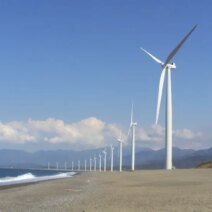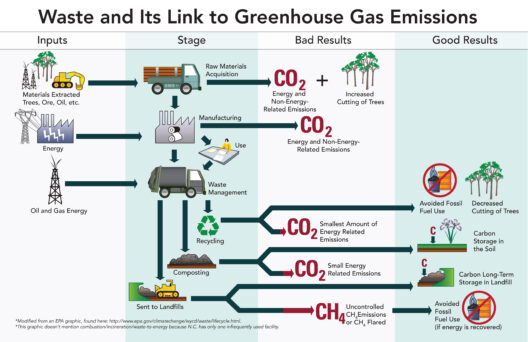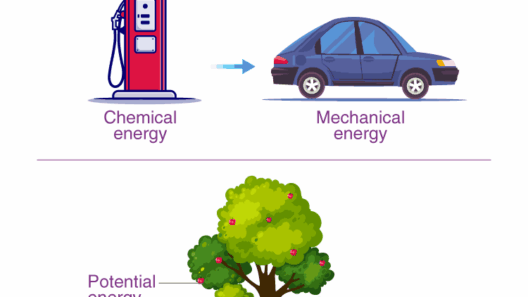Energy conservation represents a pivotal lifestyle choice that transcends mere convenience; it embodies a conscientious commitment to preserving the delicate equilibrium of our planet. The implications of saving energy resonate not only on an individual level but ripple outwards, engendering profound environmental, economic, and social ramifications. A nuanced understanding of what it means to conserve energy can lead to transformative actions that significantly elevate our collective ecological stewardship.
A Deep Dive into Energy Conservation
At its core, energy conservation involves the judicious use of energy resources to reduce overall consumption. This act requires an awareness of energy usage patterns and a willingness to modify daily habits, from turning off lights to investing in energy-efficient appliances. It is a multifaceted practice that encompasses everything from individual actions to broad socio-political policies. Thus, energy conservation not only aims at a reduction in consumption but also seeks to promote sustainability through responsible management of available resources.
The Intricate Web of Energy Consumption
Understanding energy consumption necessitates an appreciation of its various forms—thermal, mechanical, electrical, and chemical. Each category serves its unique purpose, contributing to our modern civilizations. However, it’s essential to recognize the inherent consequences that accompany energy use. Traditional methods of energy generation, particularly fossil fuels, emit greenhouse gases that aggravate climate change, disrupt biospheres, and deplete natural resources. As we strive to innovate and utilize renewable energy sources like solar, wind, and geothermal, the need for energy conservation becomes increasingly critical. The more we conserve, the less reliant we become on non-renewable energy sources, which in turn diminishes harmful emissions and environmental degradation.
Why Saving Energy Matters for the Planet
The significance of conserving energy cannot be overstated; it is a cornerstone of climate change mitigation strategies. As global temperatures rise and extreme weather events become increasingly common, minimizing energy consumption represents a tangible method for individuals and organizations to contribute to environmental remediation efforts. The benefits of energy conservation extend far beyond reducing utility bills; they encompass substantial impacts on climate stability, ecological health, and resource preservation.
A Catalyst for Climate Action
Energy conservation functions as an essential catalyst for climate action. According to various climate models, halting energy waste becomes paramount in curbing greenhouse gas emissions. By adopting energy-efficient technologies and practices, society can substantially reduce the carbon footprint. For instance, utilizing LED lighting instead of incandescent bulbs, optimizing heating and cooling systems, and harnessing smart home technologies can markedly diminish electricity usage. Such incremental improvements accumulate, yielding monumental impacts on carbon emissions, fostering a more resilient and sustainable environment.
Economic Advantages of Energy Efficiency
Beyond environmental benefits, the economic arguments for energy conservation are equally compelling. Lower energy consumption leads to reduced electricity bills for households and businesses, generating capital that can be redirected toward other essential investments. Additionally, energy efficiency creates job opportunities in sectors related to renewable energy and technology innovation. The transition toward greener alternatives promotes sustainable development, enabling local economies to thrive while preserving ecological integrity. Adoption of energy conservation practices thus becomes a symbiotic relationship, bolstering economic growth while safeguarding the planet.
Fostering Social Responsibility
Energy conservation also plays a critical role in cultivating social responsibility and community consciousness. As awareness rises about the environmental crisis, individuals and community groups are prompted to engage in sustainable practices. For instance, initiatives such as community solar projects, local energy audits, and educational outreach programs inspire collective action, seeking to embed a culture of sustainability in everyday lives. These initiatives foster a shared ethos, reminding us that the quest for energy conservation is not a solitary endeavor but a united front to combat climate change.
The Aesthetic Appeal of Energy-Saving Solutions
Engaging in energy conservation introduces a striking aesthetic element to our environments. Energy-efficient designs often integrate cutting-edge technologies that enhance architectural beauty and functionality while lowering energy consumption. For instance, buildings designed with natural lighting, solar panels, and green roofs not only serve eco-friendly purposes but also present visually compelling structures that harmonize with their surroundings. In this way, energy conservation marries functionality with artistry, encouraging a vision of a sustainable future that is both pragmatic and visually stimulating.
Conclusion: A Unified Call to Action
As the ramifications of climate change become increasingly apparent, the clarion call for energy conservation resonates louder than ever. This essential practice embodies an opportunity for individuals, organizations, and governments to unite in their efforts to curtail energy consumption and build a sustainable future. The journey toward energy efficiency transcends personal benefit; it emerges as a collective responsibility, an investment in the health of the planet, and the prosperity of future generations. Ultimately, conserving energy is not merely an aesthetic or economic choice; it is a profound ethical imperative that demands immediate and sustained action to ensure environmental preservation and planetary well-being.








